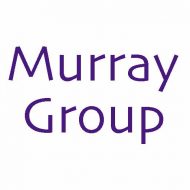National Institutes of Health
Single Cell Analysis via Nanoscale Tip-Enhanced Laser Ablation Mass Spectrometry
- R42 GM106454
- $1,183,806
- Role: PI
- 5/2016-4/2018
Abstract
The goal of the proposed Phase II STTR research is to develop an imaging system capable of detecting and identifying biomolecules in cells and tissue sections with sub-cellular spatial resolution. The system combines an atomic force microscope (AFM) with mass spectrometry (MS) analysis and utilizes a unique tip-enhanced laser ablation (TELA) method developed in the Phase I portion of the research. The current technology limitation of imaging mass spectrometry is the fact that it is possible to obtain high-resolution images of small molecules and low-resolution images of large molecules, but it is not possible to both at once. The proposed instrument directly addresses this technology limitation. The TELA effect developed under Phase I as an off – line MS method will be developed under Phase II into an on-line instrument that integrates AFM and mass spectrometry imaging for both excellent spatial resolution and biomolecule mass spectrometry. The aims of the project are divided into 1) further refinement of TELA and development of the on-line TELA-MS interface, 2) integration of TELA and MS imaging, and 3) application to brain imaging. Refinement of the tip – enhanced laser ablation involves a study of the fundamental interaction between the pulsed ablation laser and the atomic force microscope tip. The optimized ablation system will be combined with an ultra-low flow electrospray ionization system in which charged particles from the electrospray source interact with the ablation plume to form biomolecule ions. Integration of the AFM and MS imaging systems will use four imaging modalities: spot-by-spot sampling, area sampling, area imaging, and depth profiling. The result is an AFM capable of both physical and chemical imaging of cells and tissue. The AFM TELA-MS device will be applied to detection of biomolecules in rat brain tissue. Spatial profiling of lipids, peptides, cocaine, and cocaine metabolites will be performed. The AFM TELA-MS system will be constructed by Anasys, based on past product development and manufacturing experience with nanoscale imaging systems such as atomic force microscopy and infrared spectroscopy chemical imaging using tunable pulsed laser sources. Mass spectrometry performance tests will be carried out on in the laboratory of Prof. Kermit Murray at Louisiana State University who is an expert in the development of laser ablation methods for the detection of biomolecules by mass spectrometry.
